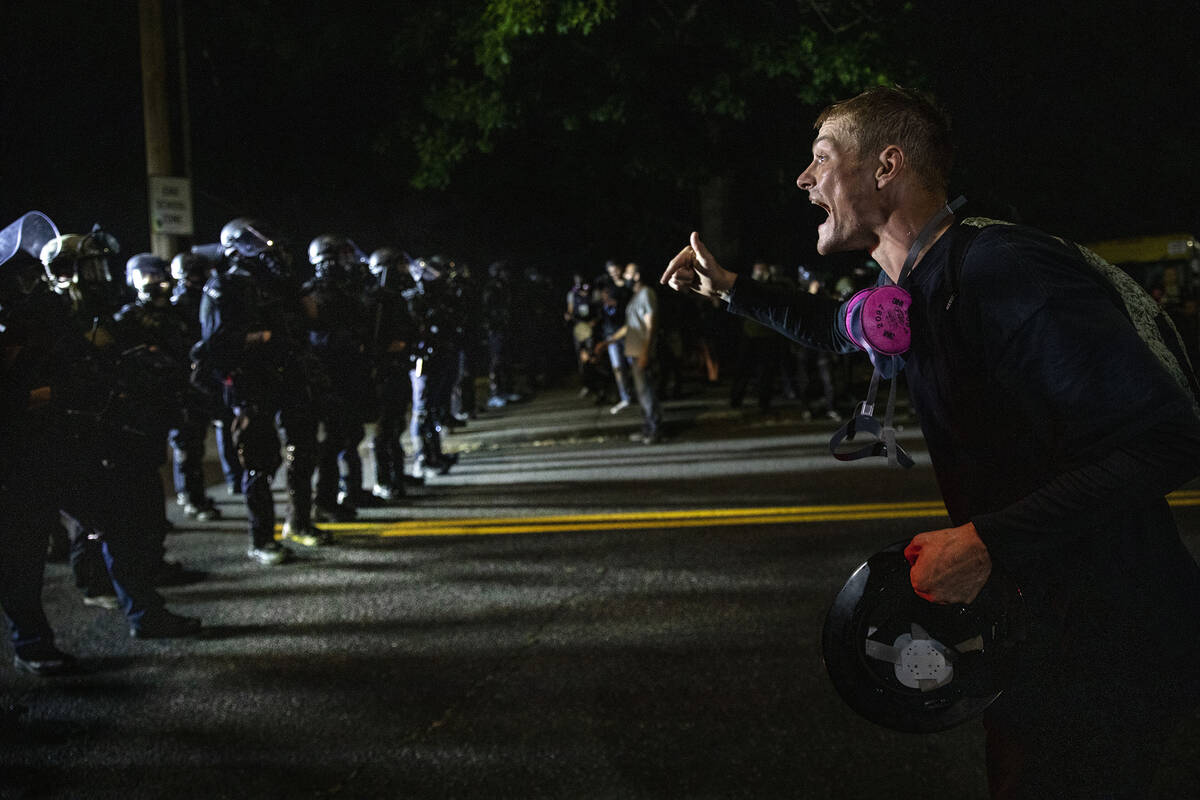VICTOR DAVIS HANSON: Left-wing violence chic
A transgender Tennessee mass shooter last week executed three adults and three 9-year-old children at a Nashville, Tennesee, private Christian school.
Supposedly she left behind a manifesto justifying her mass murdering. Law enforcement officials have declined to make the document public.
Yet in about a nanosecond after the news was disclosed, the left-wing activist machine kicked in, led by politicians, entertainers and the media. Three predictable themes surfaced.
The first was led by none other than President Joe Biden. He lectured that guns were the cause of the mass deaths, not the free will of a psychopathic killer. Few noted that the shooter illegally purchased firearms by hiding her documented record of emotional disorders.
Second, America was told that it would serve no purpose to publish the shooter’s manifesto. Apparently, this exception to the usual practice was because of fears her manifesto would hurt the transgender cause.
Third, some in the activist media claimed that, while such murdering was regrettable, it was also understandable — given supposed Christian America’s intolerance of transgender people. In our sick society, the targeted victims became the political victimizers.
Did the transgender shooter anticipate that violence for her “correct” cause would be either contextualized or blamed on the weapon rather than she who used it?
Likewise, at about the same time, a transgender activist entered the Texas Legislature and physically fought with the sergeant-of-arms.
Just days after the Nashville shooting, a trans advocacy group decided to cancel their long-planned Trans Day of Vengeance protest in front of the Supreme Court building in Washington, D.C.
It was recently disclosed that federal authorities did little or nothing last year when pro-choice mobs traveled to the homes of conservative Supreme Court justices, yelling and disrupting their neighborhoods. That mobbing was in clear violation of federal laws prohibiting protesters from swarming the homes of justices to influence their opinions. Yet, mysteriously, Attorney General Merrick Garland demurred from prosecuting the lawbreakers or beefing up security.
Amid this environment of general chaos, a would-be assassin of Justice Brett Kavanaugh turned up near the justice’s home but was convinced by his own sister to surrender.
In March 2020, then-Senate Minority Leader Chuck Schumer, D-N.Y., had all but called for violence against the justices, when he threatened two by name before an angry pro-choice crowd protesting at the doors to the court: “I want to tell you Gorsuch; I want to tell you Kavanaugh — you have released the whirlwind, and you will pay the price. You won’t know what hit you if you go forward with these awful decisions.”
What did Schumer mean by “whirlwind,” “pay the price” and “what hit you”?
On a recent episode of ABC’s “The View,” octogenarian actress Jane Fonda re-entered controversy by boasting that women were not going to retreat on abortion rights. And if their marching and protesting were not enough, Fonda smirked, “Well, I’ve thought of murder.”
Recently Wayne State professor Steven Shaviro posted his views on speech on campus: “Although I do not advocate violating federal and state criminal codes, I think it is far more admirable to kill a racist, homophobic or transphobic speaker than it is to shout them down.”
Shaviro apparently was referring to the mob at Stanford Law School that shouted down 5th U.S. Circuit Judge Kyle Duncan, who had been invited to speak by the campus Federalist Society. Students prevented him from delivering his lecture, apparently for his past refusal to change the pronouns of a convicted pedophile.
Among the many obscene taunts that were leveled at the judge by Stanford’s future lawyers, one law school protester shouted that he hoped Duncan’s daughters would be raped.
U.S. Sen. Rand Paul, R-Ky., House Majority Leader Steven Scalise, R-La., and former Republican New York gubernatorial candidate Lee Zeldin have all been the target of vicious politically driven physical attacks.
Most Americans decried the illegal entry into the Capitol on Jan. 6, 2021, by protesting Trump supporters. More than 1,000 have been charged, or are in prison, with hundreds more facing indictment.
Yet none in the Capitol was armed. And the only ones to die violently that day were among the protesters themselves.
No so in the summer 2020. Then the vast majority of the Black Lives Matter and antifa-led violent protesters who rioted, burned and looted for 120 days — injuring 1,500 police officers and causing more than 35 deaths — were either not arrested or released.
For that matter, what do Johnny Depp, Snoop Dogg, Kathy Griffin, George Lopez, Moby, Rosie O’Donnell, Mickey Rourke, and Larry Wilmore all have in common? At one time or another they alluded to ways of imagining Donald Trump’s violent death.
What do Joe Biden, Sen. Cory Booker, D-N.J., and Robert De Niro have in common? They all bragged of their desire to physically assault or beat up Trump.
For the radical Left, ideology exempts its political violence. The result for everyone else is an open-season and the end of deterrence — and frightening days ahead.
Victor Davis Hanson is a distinguished fellow of the Center for American Greatness and a classicist and historian at Stanford’s Hoover Institution. Contact him at authorvdh@gmail.com.

















